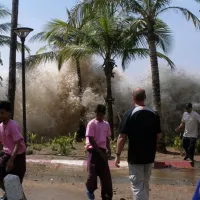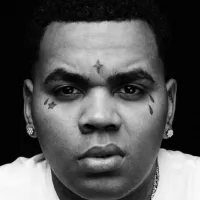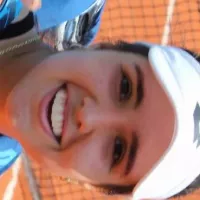The Maldives, officially the Republic of Maldives, is an archipelagic nation in South Asia situated in the Indian Ocean, southwest of Sri Lanka and India, approximately 750 kilometers from mainland Asia. It comprises a chain of 26 atolls that straddle the equator, extending from Ihavandhippolhu Atoll in the north to Addu Atoll in the south.
1932: End of Islamic dynasties
In 1932, the Islamic dynasties that began in 1153 ended, and the sultanate became elective.
1932: Proclamation of the first Constitution
In 1932, the first Constitution was proclaimed, leading to unrest and the public tearing up of the Constitution.
1953: Declaration of the First Republic
In 1953, the sultanate was suspended, and the First Republic was declared under the short-lived presidency of Mohamed Amin Didi.
1954: Restoration of the sultanate
In 1954, the restoration of the sultanate perpetuated the rule of the past.
1957: Review of agreement with the United Kingdom
In 1957, the new prime minister, Ibrahim Nasir, called for a review of the agreement with the United Kingdom.
1959: Secessionist movement in the southernmost atolls
In 1959, a local secessionist movement formed the independent United Suvadive Republic with Abdullah Afeef as president.
1960: Maldives allows UK to use Gan and Hithadhoo facilities
In 1960, the Maldives allowed the United Kingdom to continue to use the Gan and the Hithadhoo facilities for thirty years.
July 1965: Agreement signed ending British authority
On 26 July 1965, an agreement was signed ending British authority on the defense and external affairs of the Maldives, achieving independence.
1965: Payment for Maldives' economic development
From 1960 to 1965, the United Kingdom paid £750,000 for the Maldives' economic development.
1965: Independence from the United Kingdom
In 1965, the Maldives gained independence from the United Kingdom.
1965: Formal title of the sultan
Until 1965, the formal title of the sultan was Sultan of Land and Sea, Lord of the twelve-thousand islands and Sultan of the Maldives.
November 1967: Vote in parliament to decide whether the Maldives should continue as a constitutional monarchy or become a republic
In November 1967, a vote was taken in parliament to decide whether the Maldives should continue as a constitutional monarchy or become a republic. 40 of the 44 members of parliament voted in favor of a republic.
March 1968: National referendum to establish a republic
On 15 March 1968, a national referendum was held on the question, and 93.34% of those taking part voted in favor of establishing a republic.
November 1968: Declaration of the Republic
On 11 November 1968, the republic was declared, ending the 853-year-old monarchy, which was replaced by a republic under the presidency of Ibrahim Nasir.
1968: Establishment of a presidential republic
In 1968, the Maldives established a presidential republic with an elected People's Majlis.
1968: Evacuation of Giraavaru Island
In 1968, the island of Giraavaru was evacuated due to heavy erosion, leading to the near-complete absorption of the Giraavaru people into Maldivian society.
1968: Republican Constitution in Force
In 1968, the republican constitution came into force.
1968: Old Penal Code
The old Penal Code was the law in 1968, before being replaced in 2015.
1970: Republican Constitution Amended
In 1970, the republican constitution was amended.
October 1972: Opening of the first resort
On 3 October 1972, Kurumba Maldives, the first resort in the Maldives, welcomed its first guests.
1972: Resort Expansion Begins
Between 1972 and 2007, the number of resorts in the Maldives increased from 2 to 92.
1972: Emergence of Tourism
In 1972, the emergence of tourism transformed the Maldivian economy, shifting it from a dependence on fisheries.
1972: First tourist resorts opened
In 1972, the first tourist resorts, Bandos Island Resort and Kurumba Village (now Kurumba Maldives), were opened, leading to a transformation of the Maldives' economy.
1972: Republican Constitution Amended
In 1972, the republican constitution was amended.
1973: Allied Health Services Training Centre Established
In 1973, the Allied Health Services Training Centre (the forerunner of the Faculty of Health Sciences) was established by the Ministry of Health.
1974: Vocational Training Centre Established
In 1974, the Vocational Training Centre was established, providing training for mechanical and electrical trades.
1974: Mechanisation of Dhoni
In 1974, the mechanisation of the traditional fishing boat called dhoni marked a significant advancement in the development of the fisheries industry.
1975: Arrest and exile of Ahmed Zaki
In 1975, elected prime minister Ahmed Zaki was arrested and exiled to a remote atoll due to political infighting.
1975: Republican Constitution Amended
In 1975, the republican constitution was amended.
1976: Closure of the British base
In 1976, the British base was closed as part of the larger British withdrawal of permanently stationed forces 'East of Suez'.
December 1977: First accurate census held
In December 1977, the first accurate census was held, showing 142,832 people living in the Maldives.
1977: Fish Canning Plant Installation
In 1977, a fish canning plant was installed on Felivaru as a joint venture with a Japanese firm.
1977: Infant Mortality Rate
In 1977, the infant mortality rate in Maldives was 12.7%.
December 1978: Haveeru Daily News Registered
On 28 December 1978, Haveeru Daily News was registered as the country's first daily newspaper.
1978: Population Doubling
By 1978, the population of the Maldives had doubled, with life expectancy at birth standing at 46 years.
1978: Gayoom begins his presidency
In 1978, Maumoon Abdul Gayoom began his 30-year role as president, winning six consecutive elections without opposition.
1978: Nasir flees to Singapore
In 1978, with support for his administration faltering, Nasir fled to Singapore with millions of dollars from the treasury.
1979: Fisheries Advisory Board Setup
In 1979, a Fisheries Advisory Board was established to advise the government on policy guidelines for the development of the fisheries sector.
1980: Coup attempt by Nasir supporters
In 1980, a coup attempt by Nasir supporters to topple the government was unsuccessful.
July 1982: Maldives joins the Commonwealth of Nations
In July 1982, the Maldives became a member of the Commonwealth of Nations.
1982: Joined the Commonwealth
In 1982, the republic joined the Commonwealth.
1983: Coup attempt by Nasir supporters
In 1983, another coup attempt by Nasir supporters and business interests to topple the government was unsuccessful.
1984: Institute for Teacher Education Created
In 1984, the Institute for Teacher Education was created in the Maldives.
1985: Peak Population Growth Rate
In 1985, the population growth rate in the Maldives peaked at 3.4%.
1987: School of Hotel and Catering Services Established
In 1987, the School of Hotel and Catering Services was established to train personnel for the tourist industry.
November 1988: Coup d'état attempt
In November 1988, a coup d'état headed by Ibrahim Lutfee and Sikka Ahmed Ismail Manik was defeated by the National Security Services of Maldives and Indian armed forces in Operation Cactus.
1988: Warning of Sea Rise
In 1988, Maldivian authorities claimed that sea rise would "completely cover this Indian Ocean nation of 1,196 small islands within the next 30 years."
1988: Coup attempt involving mercenary force
In 1988, a coup attempt involving a mercenary force of the PLOTE seized the airport, leading to Indian intervention.
1990: Infant Mortality Rate
In 1990, the Infant mortality rate in Maldives was 34 per 1,000.
1991: Institute of Management and Administration Created
In 1991, the Institute of Management and Administration was created to train staff for public and private services.
1996: Official Progress Monitor
Since 1996, the Maldives has been the official progress monitor of the Indian Ocean Commission.
November 1997: New Constitution Assented To
On 27 November 1997, a new Constitution was assented to by then-President Maumoon.
January 1998: New Constitution Comes Into Force
On 1 January 1998, the new Constitution assented to by then-President Maumoon came into force.
1998: Reef Death Realization
Before 1998, Maldivians "never thought that this reef would die", but the El Niño event served as a wake-up call.
1998: Coral Bleaching Event
In 1998, sea-temperature warming of as much as 5 °C due to a single El Niño phenomenon event caused coral bleaching, killing two-thirds of the nation's coral reefs.
1998: Maldives College of Higher Education Founded
In 1998, the Maldives College of Higher Education was founded.
January 1999: Institute of Shar'ah and Law Founded
In January 1999, the Institute of Shar'ah and Law was founded.
2000: Sinhalese Population
In 2000, Sinhalese people made up 0.7% of the total population of the Maldives.
2000: First-Degree Programme Launched
In 2000, the Maldives College of Higher Education launched its first-degree programme, Bachelor of Arts.
2000: Population Growth Rate Decline
The census in 2000 showed that the population growth rate had declined to 1.9%.
2002: Interest in Indian Ocean Commission
In 2002, the Maldives began to express interest in the Indian Ocean Commission.
2003: Founding of the Maldivian Democratic Party
In 2003, Mohamed Nasheed founded the Maldivian Democratic Party (MDP) and pressured Maumoon into allowing gradual political reforms.
December 2004: Indian Ocean tsunami
On 26 December 2004, the Maldives were devastated by a tsunami following the Indian Ocean earthquake, causing widespread damage and casualties.
2004: Coral Regeneration Witnessed
In 2004, scientists witnessed corals regenerating due to electrified cones placed to induce regrowth of the reefs.
2004: Infant Mortality Rate
In 2004, the Infant mortality rate in Maldives was 15 per 1,000.
2004: Economic downturn following the tsunami
The economic downturn following the 2004 tsunami brought challenges to the Maldives.
2006: Population Reaches 298,968
By the 2006 census, the population of the Maldives had reached 298,968.
2007: Tourist Visits to Maldives
As of 2007, over 8,380,000 tourists had visited the Maldives.
2007: IPCC Report on Sea Level Rise
In 2007, The Intergovernmental Panel on Climate Change's report predicted the upper limit of the sea level rise will be 59 centimetres by 2100, which means that most of the republic's 200 inhabited islands may need to be abandoned.
August 2008: Ratification of Current Constitution
On 7 August 2008, the current Constitution of Maldives was ratified by President Maumoon and came into effect immediately.
2008: No Membership Application
As of 2008, the Maldives had not applied for membership to the Indian Ocean Commission.
2008: Tourism in Maldives
By 2008, the Maldives had 89 resorts offering over 17,000 beds and hosting over 600,000 tourists annually.
2008: Approval of new constitution and first direct presidential elections
In 2008, a new constitution was approved, and the first direct presidential elections occurred, which were won by Nasheed.
2008: Adoption of New Constitution
Since the adoption of the 2008 constitution, citizens and those wishing to become citizens are required by law to nominally follow Sunni Islam.
2008: Islam as Official Religion
The 2008 constitution says that the republic "is based on the principles of Islam" and that "no law contrary to any principle of Islam can be applied".
2009: Reform Process Headway
In 2009, a reform process made headway in the Maldives.
2009: Underwater Cabinet Meeting
In 2009, former president Mohamed Nasheed hosted "the world's first underwater cabinet meeting" to raise awareness of the threats posed by climate change.
2010: Fisheries Contribution to GDP
As of 2010, fisheries contributed over 15% of the Maldives' GDP and engaged about 30% of the country's workforce.
2010: Reform Process Headway
In 2010, a reform process made headway in the Maldives.
2010: Projected Population
In 2010, the population of Maldives was projected to have reached 317,280.
January 2011: Maldives National University Act Passed
On 17 January 2011, the Maldives National University Act was passed by the President of the Maldives.
February 2011: Maldives National University Named
On 15 February 2011, The Maldives National University was named.
2011: Life Expectancy at Birth
In 2011, life expectancy at birth in the Maldives was 77 years.
2011: Freedom House Report
In its 2011 Freedom in the World report, Freedom House declared the Maldives "Partly Free", claiming a reform process that had made headway in 2009 and 2010 had stalled.
2011: Social and political unrest
In late 2011, social and political unrest grew following opposition campaigns in the name of protecting Islam.
February 2012: Nasheed resigns from office
In February 2012, Nasheed resigned from office after a large number of police and army mutinied.
2012: Nasheed's Warning on Climate Change
In 2012, former president Mohamed Nasheed warned that the Maldives would be underwater in seven years if carbon emissions continued at the current rate. He called for more climate change mitigation action on shows like The Daily Show and the Late Show with David Letterman.
2012: US Bureau Report on Human Rights
In their 2012 report on human rights practices in the country, the United States Bureau of Democracy, Human Rights and Labor claimed that the most significant problems are corruption, lack of religious freedom, abuse, and unequal treatment of women.
2013: Christian Population Estimate
In 2013, scholar Felix Wilfred of Oxford University estimated the number of Christians in the Maldives as 1,400, which is 0.4% of the country's population.
2013: Contested Presidential Election
In 2013, the Maldivian presidential election results were highly contested, former president Nasheed won the most votes in the first round, but the Supreme Court annulled it despite positive assessments of international election observers. In the re-run vote Abdulla Yameen assumed the presidency.
2013: Seaplane Companies Merger
In 2013, two seaplane companies, TMA (Trans Maldivian Airways) and Maldivian Air Taxi, merged under the name TMA.
2014: Population and Housing Census
The 2014 Population and Housing Census listed the total population in the Maldives as 437,535, including 339,761 resident Maldivians and 97,774 resident foreigners.
July 2015: New Penal Code in Effect
On 16 July 2015, a new penal code came into effect, replacing the 1968 law.
2015: College of Islamic Studies Changed
In 2015, under a Presidential decree, the College of Islamic Studies was changed into the Islamic University of Maldives (IUM).
2015: Assassination Attempt on President Yameen
In late 2015, President Yameen survived an assassination attempt. Also, Vice-president Mohamed Jameel Ahmed was removed from office after a no confidence motion from the People's Majlis, and Vice-president Ahmed Adeeb was later arrested together with supporters.
October 2016: Withdrawal from the Commonwealth
In October 2016, the Maldives announced its withdrawal from the Commonwealth in protest at allegations of human rights abuse and failing democracy.
October 2016: Maldives withdraws from the Commonwealth of Nations
In October 2016, the Maldives withdrew from the Commonwealth of Nations in protest of allegations of human rights abuses and failing democracy.
2016: Severe Coral Bleaching Incident
In 2016, the coral reefs of the Maldives experienced a severe bleaching incident. Up to 95% of coral around some islands died, and even after six months, 100% of young coral transplants died.
May 2017: PSM News Founded
On 3 May 2017, PSM news, the government-owned media outlet, was founded.
November 2018: Ibrahim Mohamed Solih Wins Election
In November 2018, Ibrahim Mohamed Solih won the election and was sworn in as the Maldives' new president.
2018: Decision to Rejoin Commonwealth
Following his election as president in 2018, Ibrahim Mohamed Solih and his Cabinet decided that the Maldives would apply to rejoin the Commonwealth.
2018: "Assault on Democracy"
In 2018, the then ruling Progressive Party of Maldives (PPM-Y)'s tensions with opposition parties and the subsequent crackdown was termed as an "assault on democracy" by the UN Human Rights chief.
April 2019: MDP Wins Landslide Victory
In April 2019, The Maldivian Democratic Party (MDP) of President Ibrahim Mohamed Solih won a landslide victory, taking 65 of 87 seats of the parliament.
July 2019: Adeeb Freed and Rearrested
In July 2019, Adeeb was freed by courts in Male after his conviction on charges of terrorism and corruption was overruled but was placed under a travel ban after the state prosecutor appealed the order in a corruption and money laundering case. Adeeb escaped in a tugboat to seek asylum in India.
November 2019: Yameen Sentenced to Prison
In November 2019, former president Abdulla Yameen was sentenced to five years in prison for money laundering.
2019: Manta Air's Seaplane Service
In 2019, Manta Air began its first scheduled seaplane service, utilizing DHC-6 Twin Otter aircraft.
2019: Manta Air's ATR 72–600 aircraft
In 2019, Manta Air started using ATR 72–600 aircraft to operate domestic flights
2019: Visitor Arrivals
In 2019, over 1.7 million visitors came to the Maldives.
2019: Signed UN Treaty on the Prohibition of Nuclear Weapons
In 2019, the Maldives signed the UN treaty on the Prohibition of Nuclear Weapons.
February 2020: Maldives rejoins the Commonwealth
In February 2020, the Maldives rejoined the Commonwealth after showing evidence of functioning democratic processes and popular support.
February 2020: Readmission to the Commonwealth
On 1 February 2020, Maldives was readmitted to the Commonwealth.
2020: Study on Island Elevation
In 2020, a three-year study at the University of Plymouth found that tides move sediment to create a higher elevation, a morphological response that the researchers suggested could help low-lying islands adjust to sea level rise and keep the islands habitable.
2020: Christian Population Study
In 2020, studies found that 0.29% of the population in Maldives is Christian.
January 2021: High Court Upholds Yameen's Jail Sentence
In January 2021, the High Court upheld the jail sentence of former president Abdulla Yameen.
May 2021: Expatriate Workers
As of May 2021, there were 281,000 expatriate workers in the Maldives, with an estimated 63,000 undocumented.
May 2021: Fastest-Growing COVID-19 Outbreak
On 24 May 2021, the Maldives experienced the world's fastest-growing COVID-19 outbreak, with the highest number of infections per million people over the prior 7 and 14 days, attributed to the Delta variant.
November 2021: Supreme Court Overturns Yameen's Conviction
In November 2021, the Supreme Court overturned former president Yameen's conviction.
February 2022: Refuge for Mega-Yachts
As a result of sanctions imposed upon the Russian oligarchs by the West in response to Russia's invasion of Ukraine in February 2022, many of them sought refuge for their mega-yachts in the Maldives.
2022: Maldives population in 2022
In 2022, the Maldives' population was recorded at 515,132 according to the census.
January 2023: Evidence Act Takes Effect
In January 2023, the Evidence Act came into effect, granting courts the authority to compel journalists to reveal their confidential sources.
October 2023: Mohamed Muizzu Sworn in as President
On 17 October 2023, Mohamed Muizzu was sworn in as the eighth President of the Republic of Maldives after winning the election.
November 2023: Mohamed Muizzu Assumes Presidency
Since 17 November 2023, Mohamed Muizzu is the current president of the Maldives.
2023: World Press Freedom Index Ranking
In 2023, Maldives was ranked one-hundred in the World Press Freedom Index.
April 2024: PNC Wins Parliamentary Election
In April 2024, President Mohamed Muizzu's pro-China People's National Congress (PNC) won 66 seats in the 2024 Maldivian parliamentary election.
June 2024: Ban on Israeli Passport Holders
In June 2024, the government of the Maldives decided to ban Israeli passport holders from entering the country, as a response to the ongoing Gaza war.
2024: PNC Wins Super-Majority
At the 2024 parliamentary election, the People's National Congress (PNC) won a super-majority over the 93 constituencies.
2024: World Press Freedom Index Ranking
In 2024, Maldives was ranked 106 in the World Press Freedom Index.
2024: Yameen Freed and New Trial Ordered
In 2024, ex-President Abdulla Yameen Abdul Gayoom was freed from his 11-year conviction and the High Court ordered a new trial.
Mentioned in this timeline
India officially the Republic of India is a South Asian...
China officially the People's Republic of China PRC is an...

News encompasses information about current events disseminated through various media...
Australia officially the Commonwealth of Australia encompasses the Australian mainland...

A tsunami is a series of powerful waves caused by...

Trains are a connected series of vehicles traveling on railway...
Trending

4 months ago Kevin Gates Claims 'Mr. Louisiana' Title, Sparks Controversy with Boosie Badazz on New Track.
3 months ago Unidentified Drone Explodes in Kazakhstan, Prompting Investigation and Heightened Airspace Control.

3 months ago Aryna Sabalenka aims for first WTA Finals title amid strong competition in Riyadh.

10 months ago Camila Osorio to face Higuita Barraza in Copa Colsanitas; Predictions and Odds

8 months ago Wozniacki and Williams address retirement; Wozniacki eyes Paolini as French Open dark horse.

3 months ago Donna Vekic at WTA Chennai, Jones debuts, Parry Prediction, Chennai Open 2025
Popular

Thomas Douglas Homan is an American law enforcement officer who...

William Franklin Graham III commonly known as Franklin Graham is...

Jupiter is the fifth and largest planet from the Sun...

XXXTentacion born Jahseh Dwayne Ricardo Onfroy was a controversial yet...

Kristi Noem is an American politician who has served as...

Instagram is a photo and video-sharing social networking service owned...